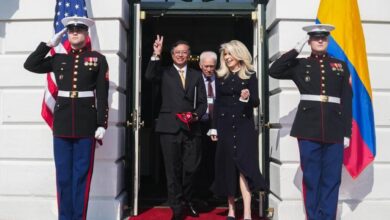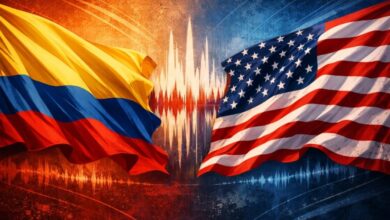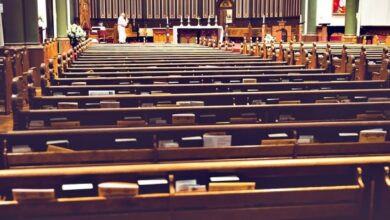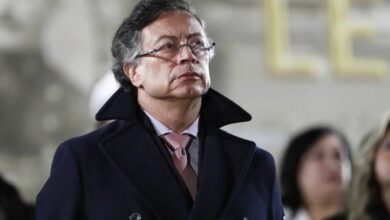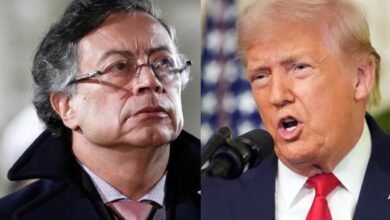Opposition Smells Slow-Motion Coup as Colombia’s Petro Bypasses Congress with Referendum
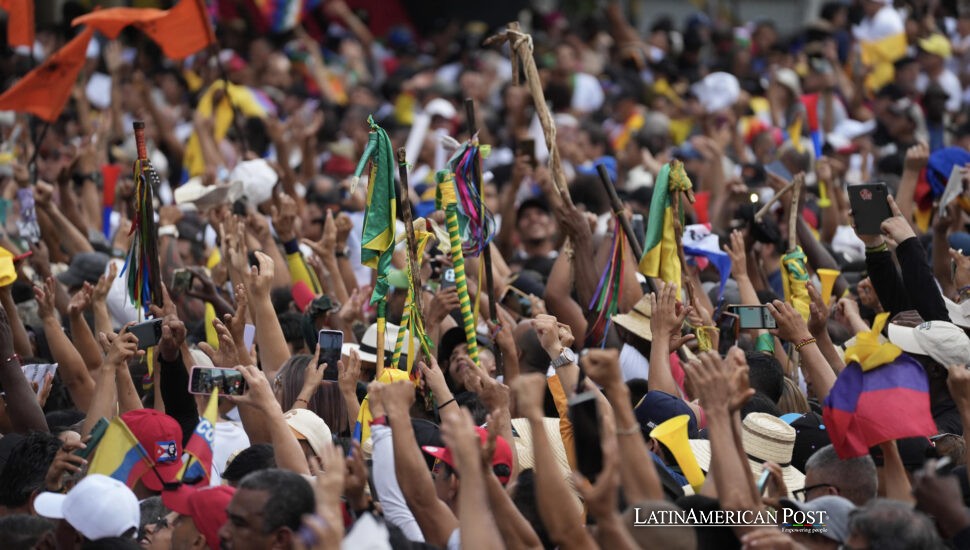
President Gustavo Petro has stunned Bogotá by decreeing a nationwide referendum for August 7—his third anniversary in office—to revive a labor bill Congress buried in March. Critics call the move a constitutional cliff-jump that risks pushing Colombia’s fragile institutions over the edge.
A Birthday Surprise Written in Bold Ink
Just after midnight, Petro signed Decree 639; the ink barely dries when aides hustle copies to the official gazette. The date he chose is no accident: August 7 marks the Battle of Boyacá, Colombia’s independence, and the day Petro first hoisted the presidential sash. His message to lawmakers was unmistakable—if you don’t give workers shorter hours and menstrual leave, the streets will.
The twelve-question plebiscite resurrects every article the Senate’s powerful Seventh Committee trashed two months ago: a 42-hour workweek, rural wage floors indexed to inflation, a ban on subcontracting in core tasks, and paid leave for women on their first two menstrual days. Senators killed the package after marathon hearings where business federations warned of “Venezuelan chaos.” Red-faced and defiant Petro accused them of guarding “feudal privileges.”
Now he invokes Article 103 of the 1991 Constitution—Colombia’s most direct democratic tool—arguing that lawmakers broke faith with the charter’s promise of a “social state of law.” Rodrigo Uprimny of the think-tank DeJusticia told EFE the decree “mangles that article beyond recognition” because popular consultations may not override ordinary legislation. The president counters that Congress has a weaponized procedure to suffocate majority demands. “This is no coup,” he thundered in Cali’s main square, “it is the people reclaiming their sovereignty.”
Opposition Sees Power Grab Move
The backlash was immediate. Centro Democrático senator Paloma Valencia marched straight to the Council of State to file an injunction. Former president Iván Duque called the decree “a Molotov cocktail lobbed at the Constitution.” Even centrist ally Juan Fernando Cristo whispered on morning radio that Petro had committed “a monumental error.”
Business groups erupted, seeing investment slumping under rolling roadblocks and the peso flirting with 5,000 per dollar. Fenalco chief Jaime Cabal said the vote would “shred confidence faster than hyper-inflation.” Their real fear is numbers: if Petro mobilizes 13.6 million “yes” ballots—the constitutional threshold—each clause becomes a political cudgel Congress can scarcely ignore.
Yet turnout is the referendum’s Achilles heel. Colombia averages 45 percent participation in local elections; stand-alone consultations often struggle to break 30. Petro’s strategists plan a campaign that fuses TikTok filters with old-school union rallies. Target one is the under-30 crowd that handed him victory in 2022 but stayed home in last year’s regional vote. Target two: rural voters still waiting for promised roads and land titles.
Opponents will run a shadow campaign of silence, urging abstention rather than “no.” If fewer than one-third of registered Colombians cast ballots, the consultation evaporates. It’s a cynical tactic, but it worked in 2021 when a corruption referendum backed by Petro’s now-vice-president Francia Márquez fell 500,000 votes short.
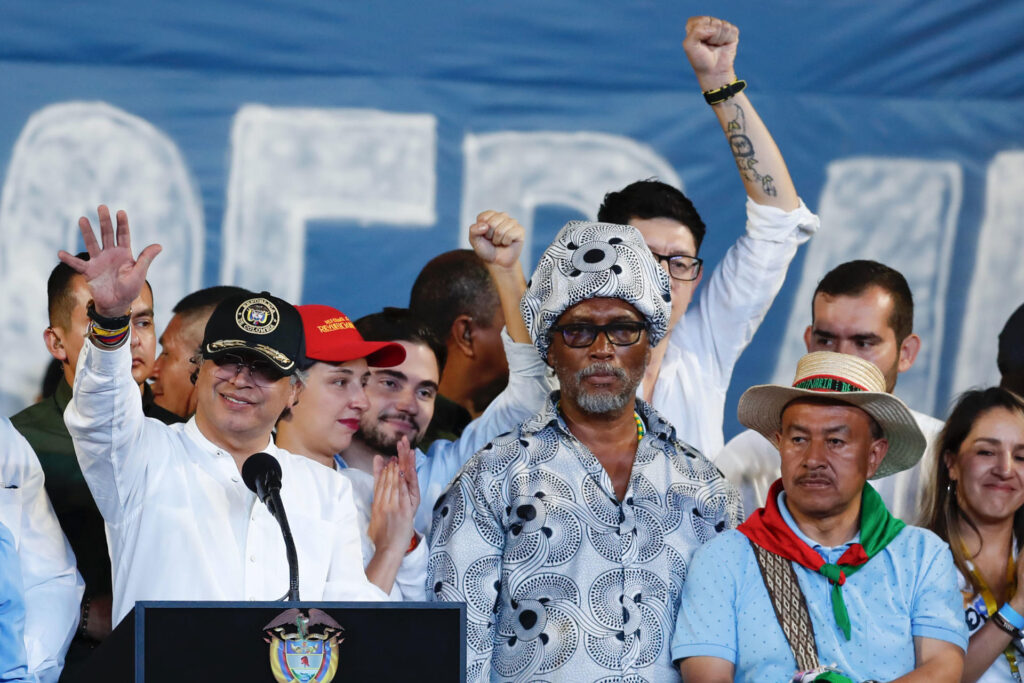
Constitutional Chess on Crowded Board
Legal scholars say the decree will face three gauntlets before a polling station opens. First, the Council of State can suspend it pending review. Second, the Constitutional Court may strike it down for breaching the separation of powers. Third, the National Civil Registry—whose chief was grilled for mismanaging 2022 ballots—must certify the questions and mount a nationwide logistics operation in just eight weeks.
Even if Petro clears every hurdle and wins big on August 7, the result is only a mandate. Congress still must draft enabling laws. “You can’t pay menstrual leave with applause,” quips conservative senator Miguel Uribe (no relation to Álvaro), promising filibusters until the last gavel falls. Petro is gambling on moral weight: deny the people’s verdict and risk becoming the villain in every barrio assembly and TikTok rant.
For the president, the stakes are existential. Inflation has dipped from triple-digit panic to 70 percent, but food prices bite. His peace talks with ELN guerrillas wobble between cease-fire and sniper flare-ups. Poll numbers hover near 40. A roaring “yes” could reset the narrative, paint him as the tribune who out-maneuvered the oligarchy, and propel left-wing candidates in 2026. A limp turnout would brand him a gambler who bet the Constitution and lost.
A Democracy Haunted by Its Ghosts
Colombia’s charter is a child of conflict: in 1991, drafters sought to bottle direct democracy so citizens would trade bullets for ballots. But each attempt to wield that bottle courts the genie of authoritarian precedent. The same Court now weighing Petro’s decree thwarted Uribe’s 2010 bid for a third term. Venezuela’s 1999 plebiscite—once admired as participatory—morphed over the years into Jair Maduro’s rubber-stamp assemblies.
Petro’s supporters argue comparisons are lazy. He is not seeking extra time in office, only worker rights long enjoyed in Europe. But every Latin American capital knows how quickly constitutional shortcuts become express lanes to concentrate power. Bogotá’s political class is suddenly humming a phrase that once belonged to columnist Yamid Amat: “Las formas son el fondo”—the process is substance.
Meanwhile, life grinds on beyond the capital. In the Pacific port of Buenaventura, stevedores cheer the prospect of overtime limits, even as dissident guerrillas threaten their docks. In Medellín, call center employees debate whether menstrual leave will cost them bonuses. In the coffee country, small exporters wonder if Petro can secure rural wage hikes without losing the U.S. buyers who keep them afloat.
Whatever happens on August 7, Colombia will emerge changed. A landslide “yes” may usher in the most pro-labor shift since the 1940s but at the price of institutional bruises. A failed vote could cripple Petro’s presidency and embolden conservatives to tighten budget screws on every social initiative he champions. Either outcome will echo beyond payroll offices into Colombia’s collective memory of strongmen, uprisings, and unfinished revolutions.
Also Read: Latin American Voices Defying Immigration Hunt Still Flooding L.A.
The decree sits in the official gazette like a lit fuse waiting for August air. Citizens weigh whether to grasp Petro’s promise or recoil from a step they fear edges too close to the abyss. In café queues and WhatsApp chats, the same question pulses: Does bypassing Congress rescue democracy—or risk blowing it apart?

